7 Best Herbal Tinctures For Benign Prostatic Hypertrophy
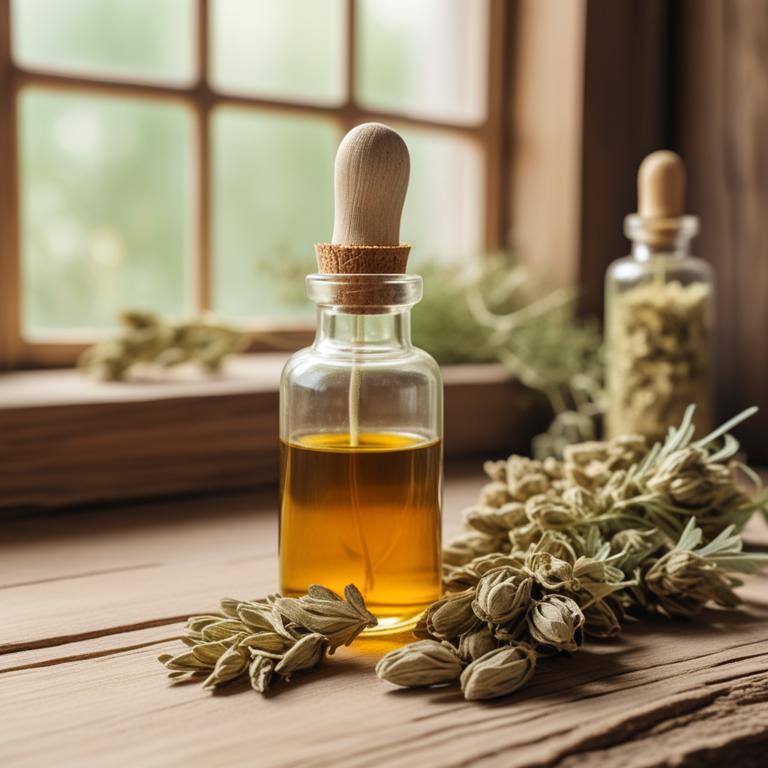
Herbal tinctures for Benign prostatic hypertrophy are liquid extracts made from various plants and herbs that are used to treat the non-cancerous enlargement of the prostate gland.
These herbal tinctures have been traditionally used to alleviate symptoms such as urinary frequency, urgency, and incomplete emptying of the bladder, as well as to reduce inflammation and promote prostate health.
Examples of herbal tinctures used to treat Benign prostatic hypertrophy include Saw Palmetto tincture, which inhibits the conversion of testosterone to dihydrotestosterone (DHT), a hormone that contributes to prostate enlargement; Pygeum tincture, which has anti-inflammatory and antioxidant properties; Stinging Nettle tincture, which may help reduce inflammation and promote prostate health; and Pumpkin Seed tincture, which is rich in zinc and may help reduce prostate size.
By using these herbal tinctures, individuals may experience relief from symptoms and improved overall prostate health, making them a potential alternative to pharmaceutical treatments.
According to "The Annals of pharmacotherapy", tinctures for benign prostatic hypertrophy may be effective in treating the condition when made from herbs such as Serenoa repens, Pygeum africanum, Urtica dioica radix, and Cucurbita peponis semen.
Below there's a list of the 7 best herbal tinctures for benign prostatic hypertrophy.
- 1. Tribulus terrestris tinctures
- 2. Serenoa repens tinctures
- 3. Vitex agnus-castus tinctures
- 4. Glycyrrhiza glabra tinctures
- 5. Urtica dioica tinctures
- 6. Curcuma longa tinctures
- 7. Crataegus monogyna tinctures
Also you may be interested in...
TODAY'S FREE BOUNDLE
Herb Drying Checklist + Herbal Tea Shopping List + Medicinal Herbs Flashcards
Enter you best email address below to receive this bundle (3 product valued $19.95) for FREE + exclusive access to The Aphotecary Letter.
$19.95 -> $0.00
1. Tribulus terrestris tinctures
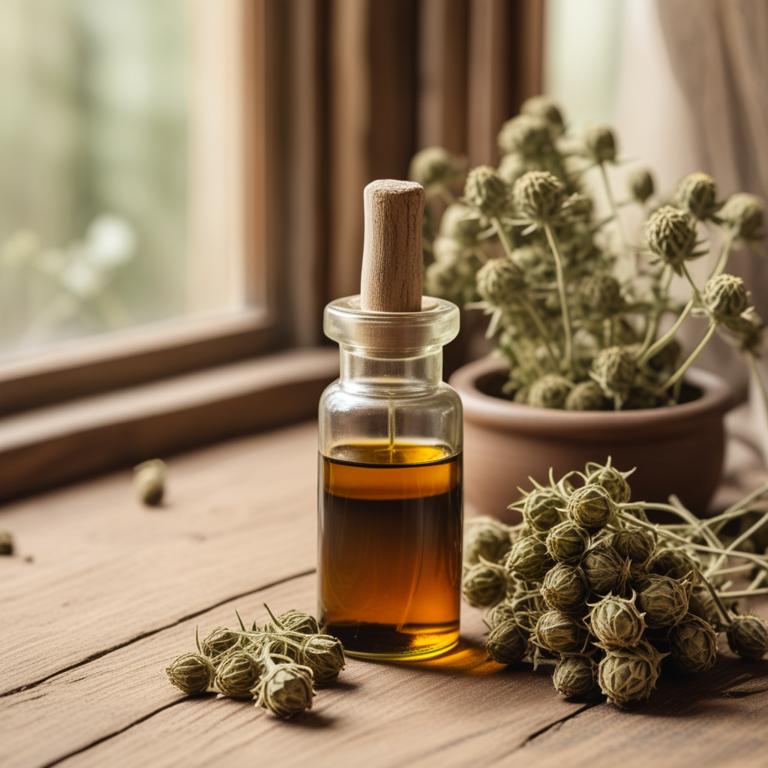
Tribulus terrestris tinctures have been traditionally used to treat benign prostatic hypertrophy (BPH) due to their diuretic, anti-inflammatory, and antioxidant properties.
The bioactive constituents present in Tribulus terrestris, such as flavonoids, alkaloids, and saponins, help to reduce the size of the prostate gland and alleviate symptoms associated with BPH, including urinary frequency and nocturia.
By inhibiting the conversion of testosterone to dihydrotestosterone (DHT), a hormone that contributes to prostate enlargement, Tribulus terrestris tinctures may help to slow down the progression of BPH.
The benefits of using Tribulus terrestris tinctures to treat BPH include improved urinary flow, reduced symptoms, and a decrease in the risk of complications associated with prostate enlargement.
2. Serenoa repens tinctures
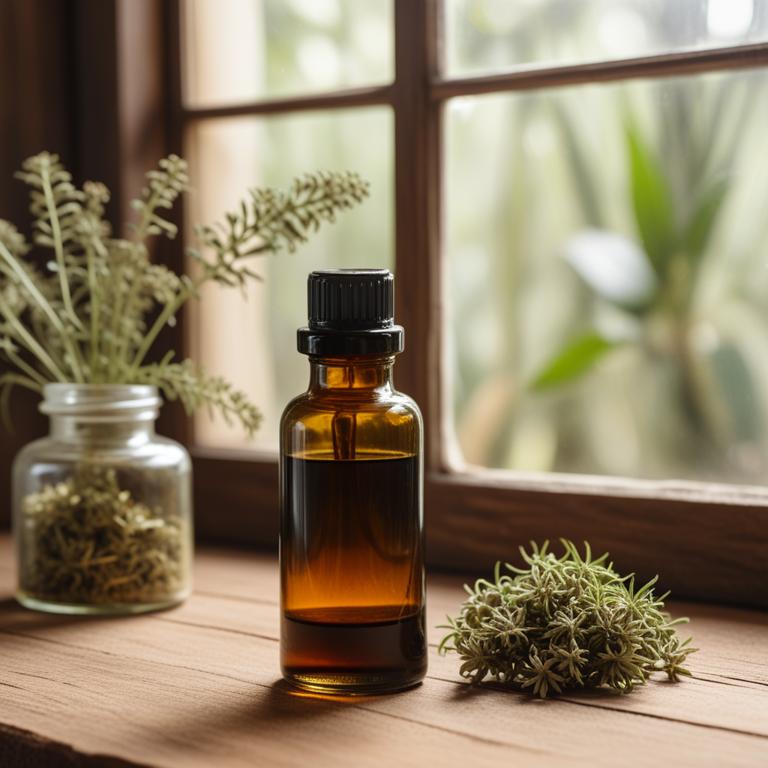
Serenoa repens tinctures have been traditionally used to treat the symptoms of benign prostatic hypertrophy (BPH) due to their anti-inflammatory, diuretic, and alpha-adrenergic blocking properties.
These properties help to alleviate the urinary retention and frequency associated with BPH by relaxing the smooth muscles in the prostate gland and increasing urine flow.
The bioactive constituents of Serenoa repens tinctures, including saw palmetto, flavonoids, and phytosterols, may inhibit the conversion of testosterone to dihydrotestosterone (DHT), a hormone that contributes to prostate enlargement.
By reducing DHT levels and relaxing the prostate muscles, Serenoa repens tinctures may help to improve urinary symptoms and quality of life for individuals with BPH.
Related Study
According to "The Annals of pharmacotherapy", Serenoa repens tinctures for benign prostatic hypertrophy have been shown to be effective in treating a number of objective and subjective symptoms in patients with stages I and II BPH.
3. Vitex agnus-castus tinctures
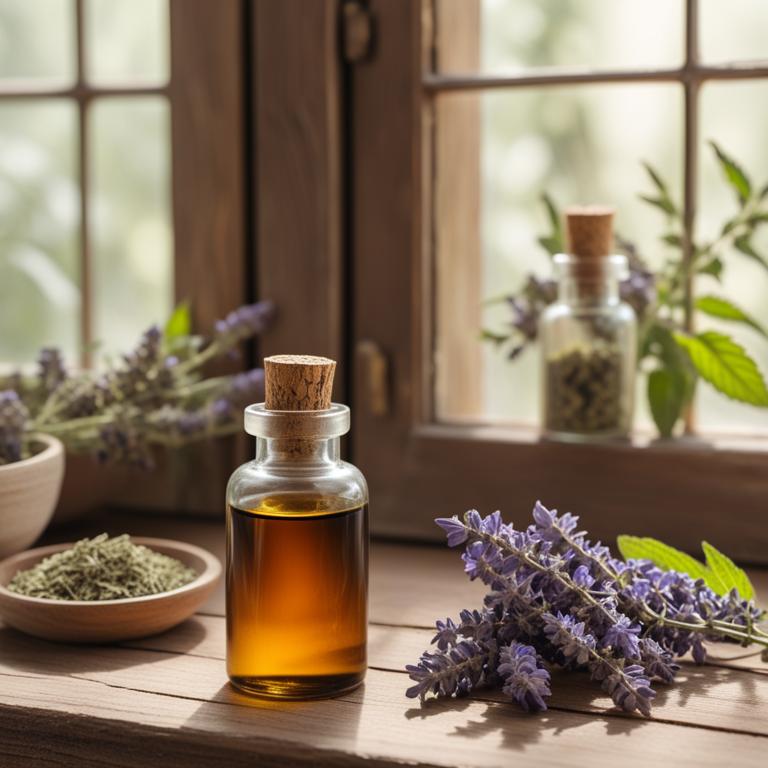
Vitex agnus-castus tinctures have been traditionally used to treat the symptoms of benign prostatic hypertrophy (BPH), a non-cancerous enlargement of the prostate gland, in men.
The properties of this herbal preparation, including its anti-androgenic and anti-inflammatory effects, help to reduce the size of the prostate gland and alleviate urinary symptoms associated with BPH.
The bioactive constituents of Vitex agnus-castus, such as ursolic acid and aucubin, have been shown to inhibit the production of dihydrotestosterone (DHT), a hormone that contributes to prostate enlargement.
By reducing DHT levels and alleviating inflammation, Vitex agnus-castus tinctures may help to alleviate symptoms of BPH, including urinary frequency, urgency, and painful urination.
4. Glycyrrhiza glabra tinctures

Glycyrrhiza glabra tinctures have been traditionally used to treat benign prostatic hypertrophy (BPH), a non-cancerous enlargement of the prostate gland.
The anti-inflammatory and antioxidant properties of this herbal preparation help to reduce inflammation and oxidative stress in the prostate gland, alleviating symptoms of BPH such as urinary frequency and nocturia.
The bioactive constituents of Glycyrrhiza glabra, including flavonoids, saponins, and phenolic acids, have been shown to inhibit 5-alpha-reductase, an enzyme that converts testosterone to dihydrotestosterone (DHT), a hormone that contributes to BPH.
By inhibiting DHT production, Glycyrrhiza glabra tinctures can help to reduce prostate size and alleviate symptoms of BPH, making it a beneficial herbal remedy for men suffering from this condition.
5. Urtica dioica tinctures
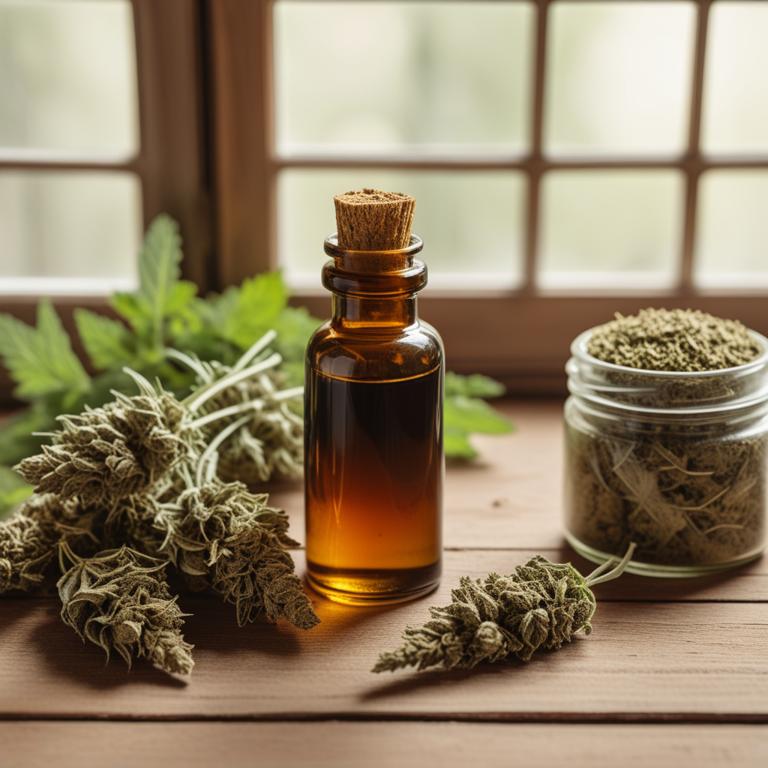
Urtica dioica tinctures, derived from the leaves of the stinging nettle plant, have been traditionally used to treat benign prostatic hypertrophy (BPH) due to their anti-inflammatory, antioxidant, and diuretic properties.
The tincture helps to alleviate BPH symptoms by reducing inflammation and promoting urinary flow, thereby providing relief from urinary retention and frequency.
The bioactive constituents of Urtica dioica, including flavonoids, saponins, and caffeic acid, have been shown to contribute to its therapeutic effects, with caffeic acid exhibiting particular promise in reducing prostate size and alleviating BPH symptoms.
The benefits of using Urtica dioica tinctures to treat BPH include reduced symptoms, improved urinary function, and a decrease in the risk of complications associated with the condition.
Related Study
According to "Planta medica", Urtica dioica tinctures for benign prostatic hypertrophy show effectiveness, with the 20% methanolic extract being the most effective, inhibiting induced growth by 51.4%.
6. Curcuma longa tinctures

Curcuma longa tinctures, derived from the rhizomes of the Curcuma longa plant, have been traditionally used to treat benign prostatic hypertrophy (BPH) due to their anti-inflammatory and antioxidant properties.
The bioactive constituents present in Curcuma longa tinctures, including curcumin, demethoxycurcumin, and bisdemethoxycurcumin, help to inhibit the growth of prostate cells and reduce inflammation, thereby alleviating symptoms of BPH such as urinary frequency and urgency.
The mechanism of action of Curcuma longa tinctures involves the modulation of androgen receptors and the inhibition of 5-alpha-reductase, an enzyme involved in the conversion of testosterone to dihydrotestosterone, a key contributor to BPH.
Regular use of Curcuma longa tinctures has been associated with significant benefits in reducing BPH symptoms, improving urinary flow, and enhancing quality of life for individuals affected by this condition.
Related Study
According to the given study, Curcuma longa tinctures for benign prostatic hypertrophy may be beneficial as it contains phytocompounds such as curcumin, which has been reported to be useful for the management of BPH.
7. Crataegus monogyna tinctures
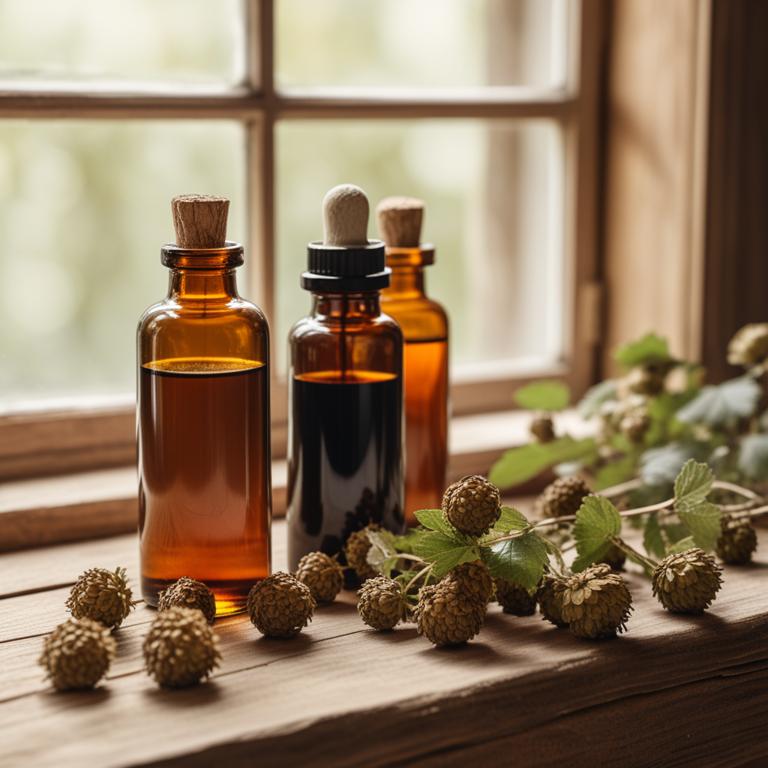
Crataegus monogyna tinctures have been traditionally used to treat benign prostatic hypertrophy (BPH) due to their diuretic, anti-inflammatory, and antioxidant properties.
The tannins and flavonoids present in these tinctures help to reduce the size of the prostate gland and alleviate urinary symptoms associated with BPH.
The bioactive constituents, including quercetin, kaempferol, and ellagic acid, have been shown to inhibit the growth of prostate cells and reduce prostate-specific antigen (PSA) levels, thus helping to treat BPH.
The benefits of using Crataegus monogyna tinctures to treat BPH include reduced symptoms, improved urinary flow, and a decrease in the risk of complications associated with this condition.